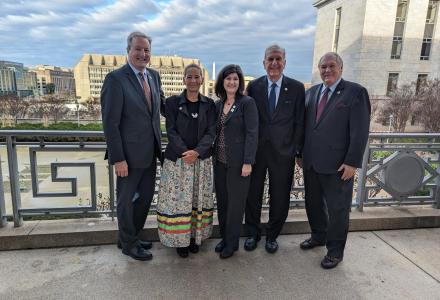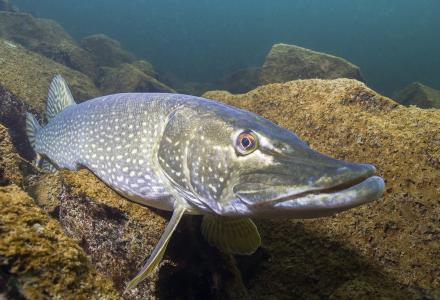
A poetic ode to the freshwater seas from singer-songwriter Sarah Harmer was followed by a lively panel discussion on Great Lakes protection during a public forum on Sept. 24 in Windsor, Ontario, sponsored by the IJC’s Great Lakes Water Quality Board.
Nearly 100 people attended the Great Lakes forum at the University of Windsor, where topics ranged from harmful algal blooms to microplastics and water diversions.
The event was part of the Water Quality Board’s planning meeting in Windsor – the 185th meeting of the Board, which is the IJC’s principal adviser in identifying and addressing Great Lakes issues under the Water Quality Agreement between Canada and the U.S.
The IJC’s Science Advisory Board, which provides advice on research and science to the Commission, also met in Windsor on Sept. 24-25 to discuss priorities and action plans. Science Board members heard a presentation from Dr. Sherri Mason, chemistry professor at the State University of New York at Fredonia. Mason discussed the threat of microplastics pollution in the Great Lakes, and efforts under way to address the problem.
 Sarah Harmer, at right, speaks to reporters outside the forum.
Sarah Harmer, at right, speaks to reporters outside the forum.
Harmer, a Canadian singer and songwriter, has been active for years in efforts to protect the lakes. She participated in a celebration in 2009 marking the 100th anniversary of the Boundary Waters Treaty.
At the Water Quality Board event, Harmer helped set the tone. She recited her “Postcards from the Lakes” vignettes – evoking images of waves lapping on beaches, spectacular sunsets and windblown beach sand stinging her ankles. She called on citizens to fully participate in efforts to protect the lakes.
The panel discussion that followed included conversations with audience members on a range of topics. Panelists included Dr. John Hartig of the Detroit International Wildlife Refuge; Dr. Doug Haffner of the University of Windsor; and Mark Mattson, an environmental lawyer and Water Quality Board member. The forum was moderated by Rob de Loe, the Board’s Canadian co-chair.
Panelists urged the audience to be engaged with Great Lakes protection on some level – whether it is adopting personal water conservation habits, voting for candidates who support strong environmental policies, or participating in forums and public comment opportunities.
“The Great Lakes is an iconic brand. It is our Rocky Mountains,” Mattson said. “It does not belong to government or industry. It belongs to you.”
Haffner said the “lakes have responded to our efforts” at cleaning up pollution and limiting hazardous discharges, but the issues are changing. Researchers, policymakers and the public must change with them, he said, and citizens must make an effort to learn how to effectively engage politicians and policy makers on behalf of the Lakes.
“Our science is not perfect,” he said. “Our knowledge is not perfect. But we have to keep pace. The public must not lose faith that we can solve these problems. We need to learn the rules. We all know the rules of hockey. Change one little thing (in hockey), and there’s an uproar. But people can’t name one or two laws that protect our water.”




